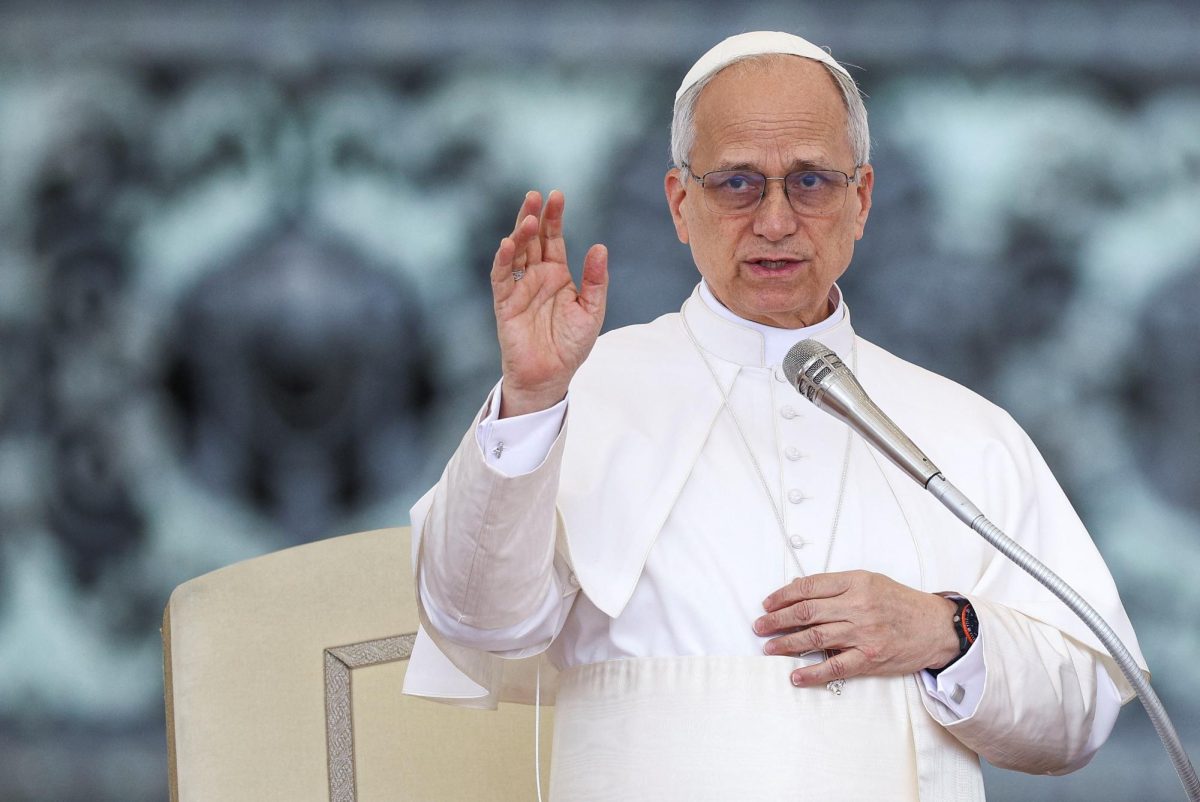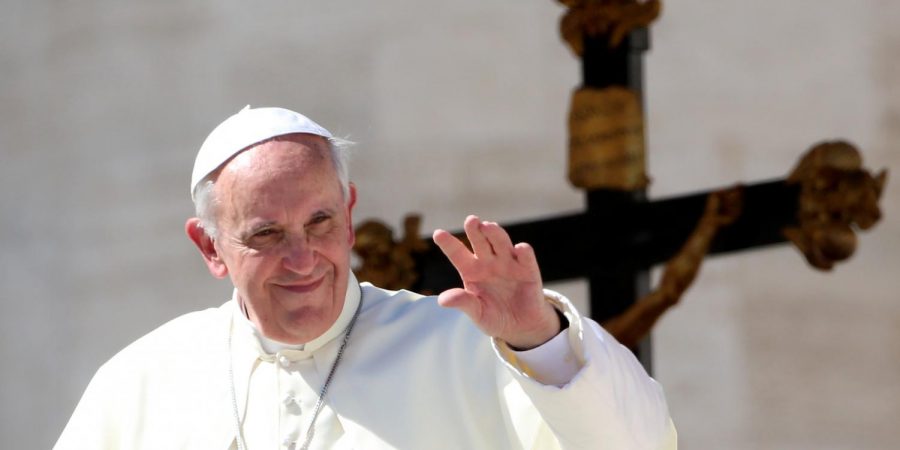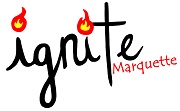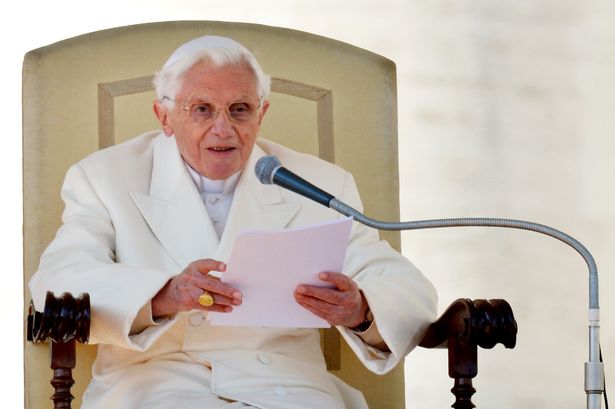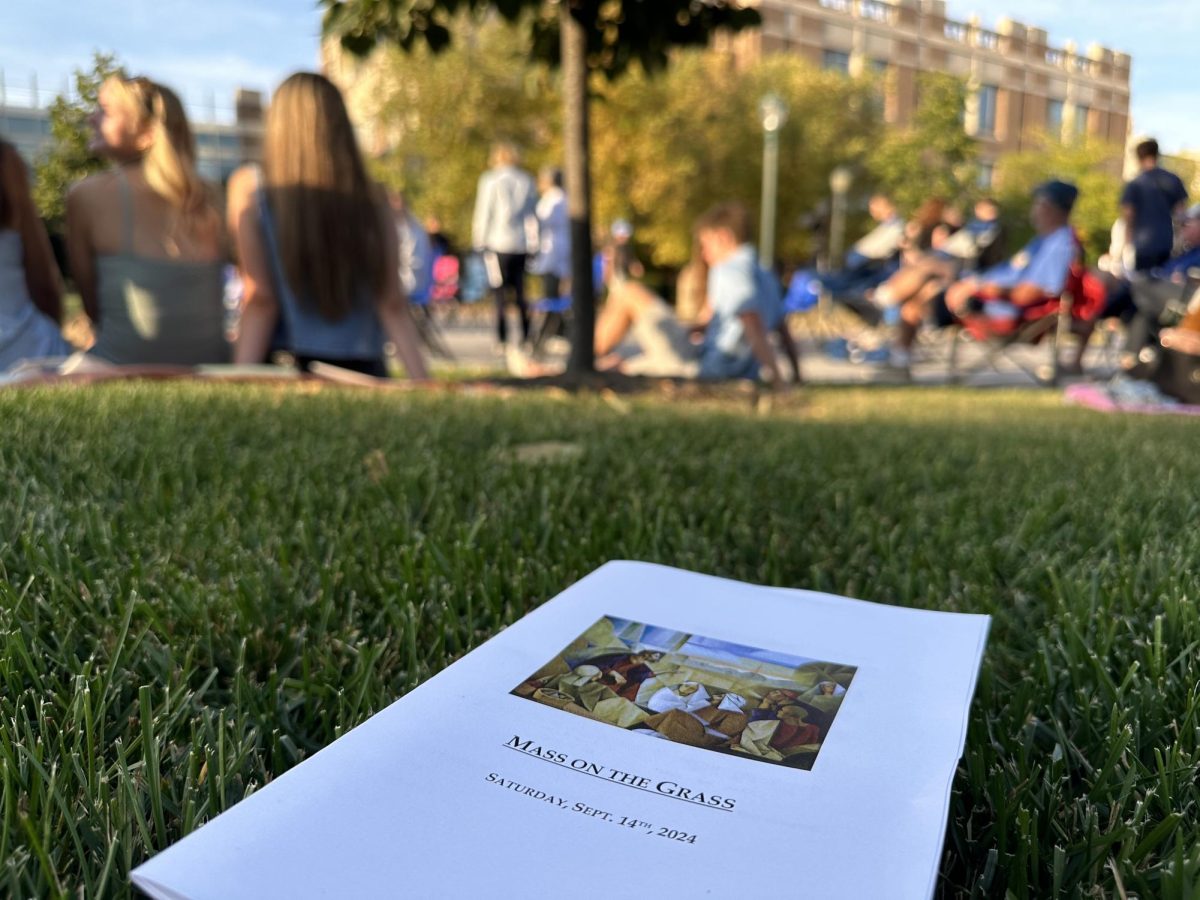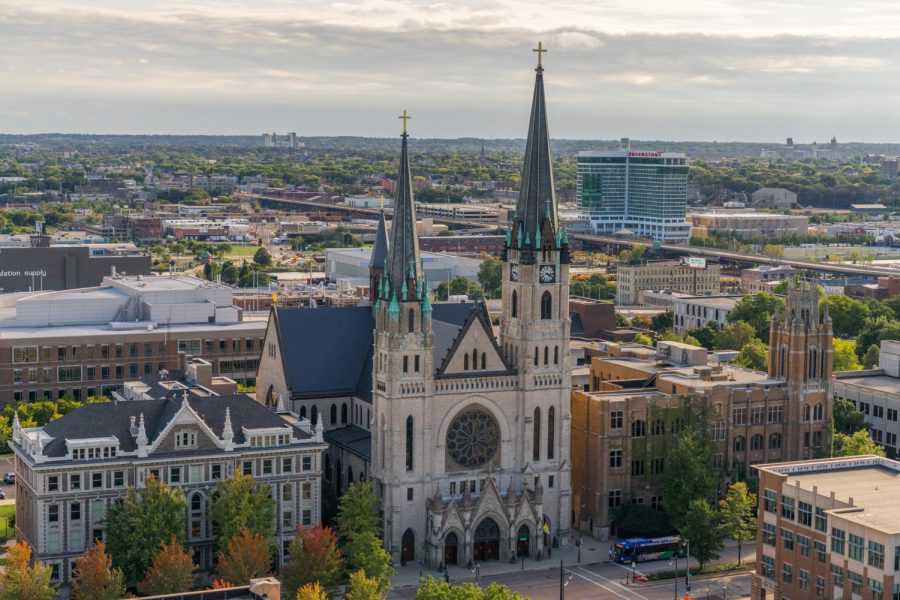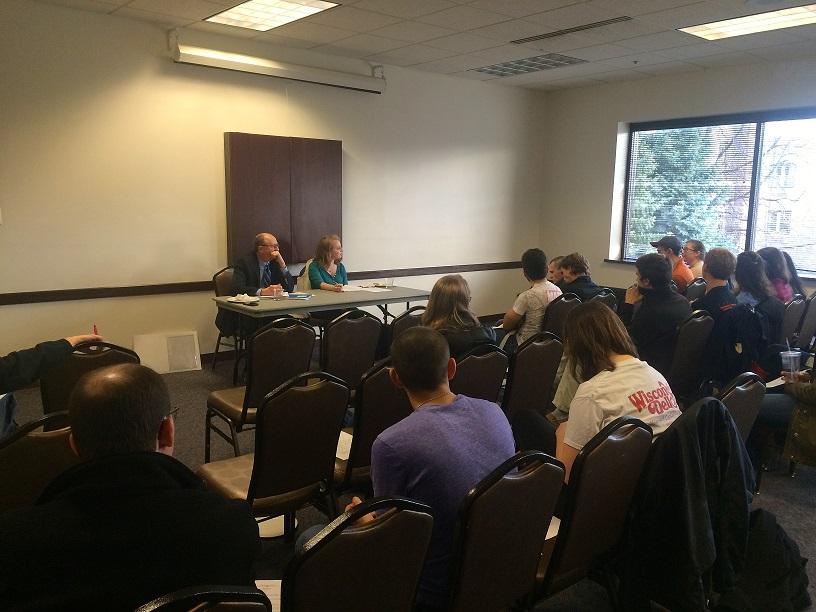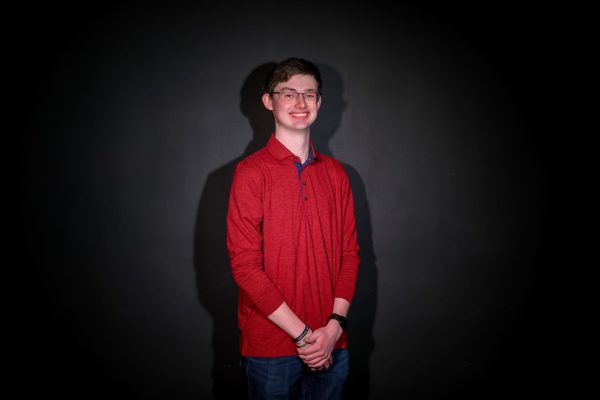Following the death of Pope Francis on April 21, Cardinals in Rome began the papal Conclave at the Sistine Chapel on May 7, with the Catholic world awaiting the chance to recite the line, “Habemus Papam,” a Latin phrase, meaning, “We have a pope.”
The following day, on May 8, white smoke emerged from the roof of the Sistine Chapel, announcing that a new pope had been elected.
On the other side of the world, Marquette University likewise recognized the event with a symbol in the sky, as the bells from The Church of the Gesu rang out across campus in celebration of the occasion.
In the Alumni Memorial Union that afternoon, a crowd of students gathered around a television, waiting for the pope’s identity to be revealed.
“The immense amount of texts that [went] out when the pope was elected, like, ‘We have a pope!’ It was kind of a joyful time,” Kaitlyn Rohan, a senior in the College of Arts and Sciences, said.
Finally, Cardinal Robert Prevost took to the balcony, adorned with papal garments before the crowd outside of the Vatican. He would take the name of Pope Leo XIV, and though he is set to share a name with thirteen previous popes, one trait separates him from every pope to have held the office before.
Leo is American, born and raised in Chicago, Illinois, before getting a bachelor’s degree in mathematics at Villanova University. Though he would go on to spend his career in Peru and acquire dual citizenship, his American roots remained part of his identity.
Leo is also a shown supporter of America’s pastime: baseball. Shortly after the announcement of his election, broadcast footage surfaced that placed him in the crowd at Game 1 of the 2005 World Series, supporting his hometown Chicago White Sox.
“For most people throughout history, the papacy has been something pretty far away. In terms of geography and culture, it’s not been something that they could personally resonate with,” Rev. James Pribek, S.J., assistant vice president of the Office of Mission and Ministry, said. “The notion of a pope following baseball or eating Chicago-style hot dogs kind of boggles our mind because it just breaks out of that category that the papacy is something exotic and far away.”
Prior to sharing the themes of his pontificate with public addresses, Leo indicated a desire to explore technology and artificial intelligence by his choice of name, which was announced when he emerged on the balcony. The last pope to bear the title, Pope Leo XIII, was the first to be photographed and blessed the camera that took the picture.
“I think we’re going to be hearing more about [technology] in the next few years,” Pribek said. “Technology has advanced so quickly that I think we in education and people of faith haven’t been able to keep up and haven’t really been able to talk about this and deal with it in ways that we’re happy with yet.”
Despite a desire to approach newer issues like artificial intelligence, Leo’s style was a call back to tradition, wearing garments that included a red cape historically worn by the pope. His predecessor, Pope Francis, had forgone some of the formalities of the role due to his simpler nature.
“Seeing what the traditional garments are like, like the hats, that is always cool to see the different traditions come back to life,” Rohan said.
At Leo’s installation on May 18, he had the opportunity to set more themes for his pontificate, using his homily to discuss the importance of unity in the church and the world.
“We are called to offer God’s love to everyone, in order to achieve that unity which does not cancel out differences but values the personal history of each person and the social and religious culture of every people,” Leo said.
The message of unity was spread to leaders from around the world that attended the Mass, including United States Secretary of State Marco Rubio, Vice President J.D. Vance and Peruvian President Dina Boluarte.
“I really am excited to see how he continues to focus on unity within the church and within the world,” Rohan said. “He’s already been meeting with world leaders on a call for peace, trying to not necessarily mediate, but just bring everyone back to the table and talk with people.”
Though Leo has been installed as the leader of the Catholic Church, his call for unity has left several onlookers waiting to see him extend his reach beyond the walls of the church.
“We really need somebody to speak beyond boundaries, beyond borders, about what we as human beings think is right and wrong.” Pribek said. “So I’m very happy and very confident in the fact that he’s going to play that role.”
This story was written by Lance Schulteis. He can be reached at lance.schulteis@marquette.edu.


